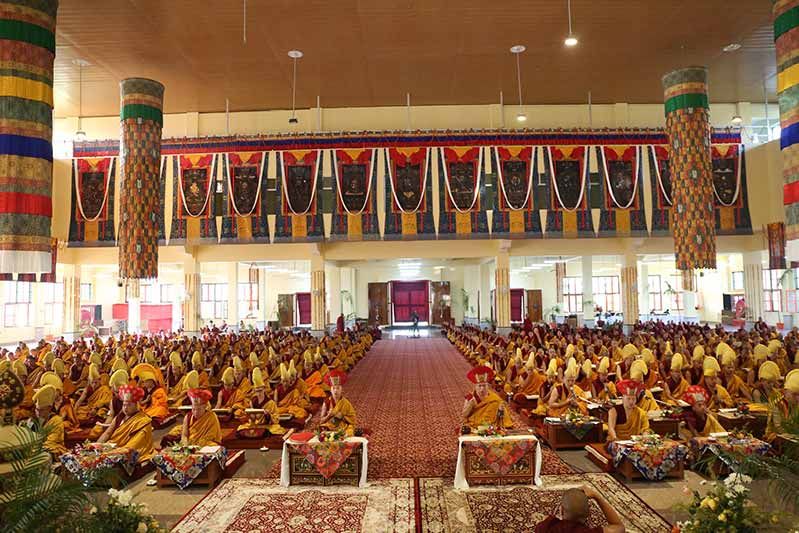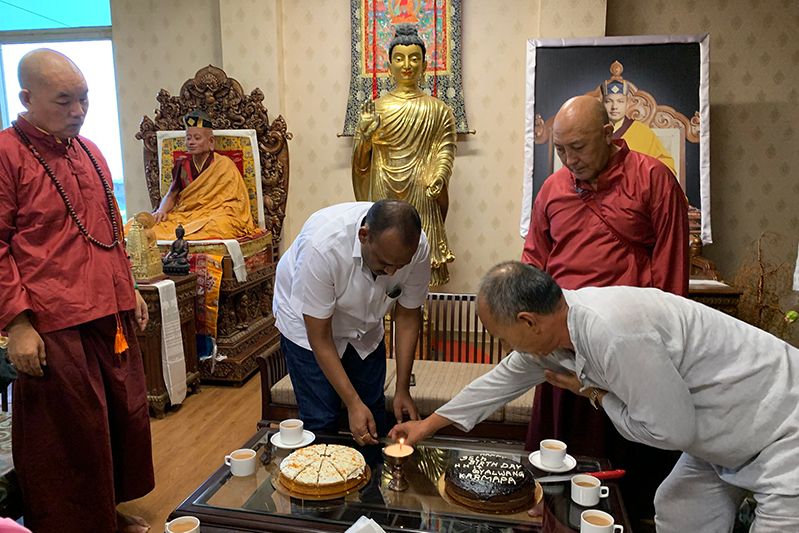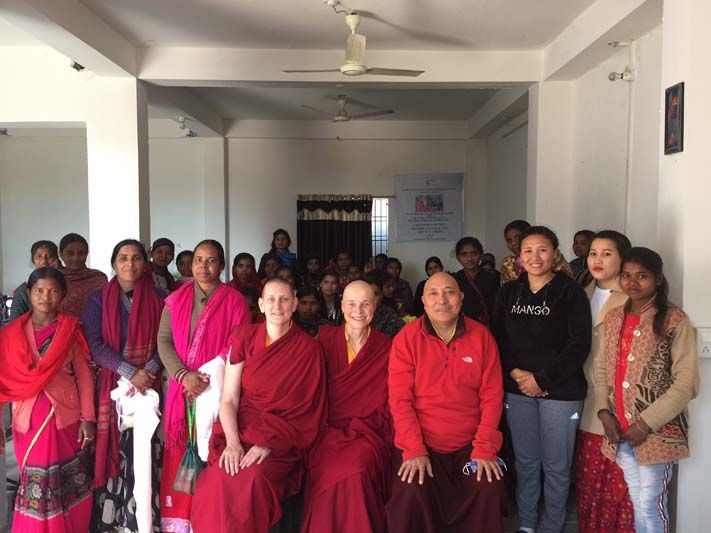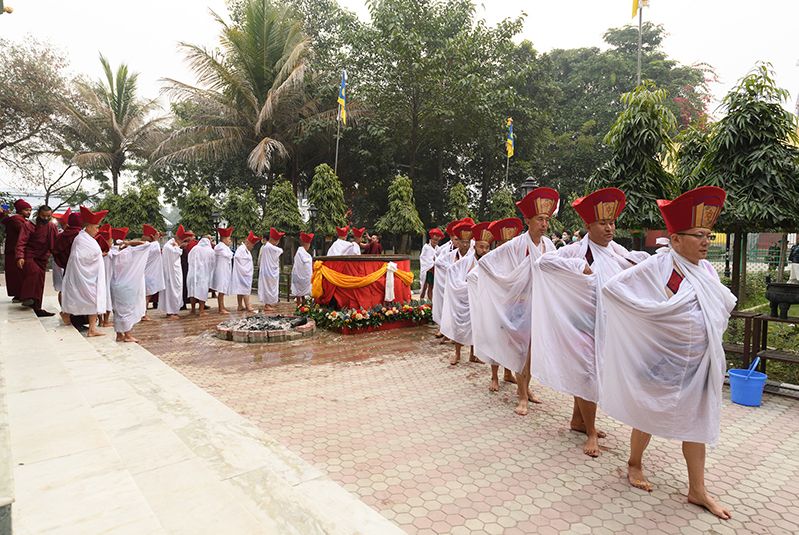Yongey Mingyur Rinpoche on the Four Foundations of Mindfulness Session 2: Recognizing Awareness is the Basis
- January 28, 2020

The Pavilion, Bodh Gaya, India
January 28, 2020
Following recitation of the Praises of the Twenty-One Taras during the tea break, Kyabje Yongey Mingyur Rinpoche laughingly posed the question to all the Kagyu Monlam attendees, “How many meditated? Did you get distracted and forget?” After polling everyone on their practice during the break, he reiterated the importance of formal, silent practice sessions and informal practice embodied during any activity whether walking, standing, drinking tea, and so forth. Practicing in this informal way helps to pacify afflictions and suffering because it becomes the ground for training and developing strength in formal sessions.
Before elaborating further on the four foundations of mindfulness, Rinpoche illuminated specific characteristics of Buddhist shamata meditation which distinguish it from other pranayama traditions that focus on changing the breath. For instance, when practicing Buddhist shamata, “whatever the nature of breath is, we leave it alone.” Even if the breath is long, short, even, or uneven, there is nothing that needs to be stopped or trained. Here, resting in the nature of the breath as the object is what develops prajna. In fact, remembering the inhalation and exhalation itself becomes prajna. Also, another important aspect of shamata is that nothing needs to be blocked. Rinpoche noted that, “thoughts and afflictions should not be blocked or they become an aversion.”
To emphasize his earlier teaching that listening and contemplation must also be accompanied by meditation, Rinpoche turned to a guided meditation practice focusing on one type of shamata practice – following the breath. For this practice, the mind follows the breath as it moves in and out. He guided, “thoughts will happen but there is no need to block them.” He gently reminded, “if you forget the breath, that is the distraction;” and, he also encouraged, “just let the breath rest as it is.”
As he wrapped up the guided meditation, Rinpoche prompted a discussion with the question: How do particular features of shamata free us from the three poisons – ignorance, aversion, attachment – and begin to liberate us? Rinpoche patiently nodded and listened closely to attendees’ responses. Then, he emphasized that ignorance is the basis of attachment and aversion. “When we focus on the breath as it is,’’ he said, “that is prajna which is the antidote to ignorance.” If we do not forget the breath and let thoughts come without trying to stop them, then the mind of aversion slowly becomes pacified. Attachment is also pacified by resting on the breath. How so? Because whether the breath is long or short or whatever quality, when we stop trying to control or grasp it, then attachment is pacified. Thus, we have to tame our minds in order to achieve liberation. And to do this, we have to practice.
The basis of all these practices are the four foundations of mindfulness – body, feelings, mind, and dharma. All four foundations of mindfulness are important but central to the Tibetan tradition, especially the Kagyu lineage, is mindfulness of mind. Recognizing awareness establishes the basis of mindfulness. Rinpoche identified three types of awareness: ordinary, samadhi, and non-referential. In the context of mindfulness of mind, awareness is knowing. Knowing refers to clarity or luminosity of the object itself. He clarified the meaning of this teaching with an example. As he lit a candle and held it up, he noted that it is luminous itself. When we look at the flame, we do not need a flashlight. The flame itself is luminous. In the same way, we must know the specific characteristics of mind as clear and aware. Yet, due to grasping at dualistic perception of subject and object, we have attachment and wander in samsara in ignorance failing to recognize our own perception. When we do begin to have this recognition, this is shamata.
To conclude this second session, he turned to the universal characteristics of the foundations of mindfulness: impermanent, endowed with suffering, empty, and selfless. When we practice, we must bring everything to a single point such as impermanence. He led a final guided practice where attendees focused on the changing nature of breath as impermanence itself. He reminded us that we can rest in the changes of breath and this becomes the basis of insight.

37th Kagyu Monlam Schedule
Tibetan / English / Chinese • French • German • Indonesian • Korean • Polish • Russian • Spanish • Vietnamese
Dharma Teachings
 Meditation Instructions
Meditation Instructions
Recorded during the 37th Kagyu Monlam, Bodhgaya, India. January 28-30, 2020.






